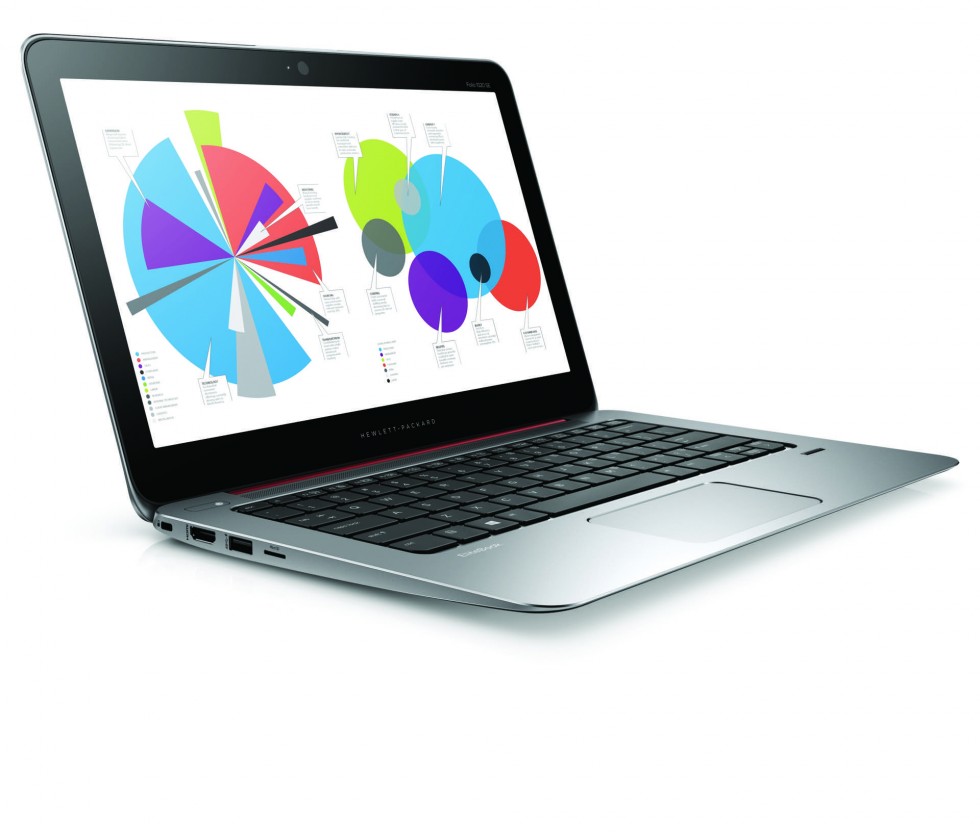
The high-end Ultrabook market is tightly bound to Intel's release schedule. No other company is offering similar performance and power consumption, so when Intel hits a delay like it did with its new Broadwell architecture, it means that things get boring for a while. We're expecting the landscape to get more intriguing as we draw closer to CES in January, though, and HP has just announced a pair of Ultrabooks that have piqued our interest.
The EliteBook Folio 1020 series comes in two flavors, both of which are 0.62 inches thick: the first is the Standard Edition, a more run-of-the-mill system that starts with a 12.5-inch 1080p display and weighs 2.6 pounds. It's slated for availability sometime in February. You'll have to wait longer for the more interesting G1 Special Edition, a laptop which shares the same design but uses "green carbon fiber" to reduce the weight to 2.2 pounds and bumps the entry-level screen resolution to 2560×1440. That system unfortunately won't be available until April, and we don't yet have pricing information for either model.
The Standard Edition will have a 2560×1440 upgrade option and will come in touch and non-touch versions; the Special Edition will not offer a touchscreen. End each will ship with your choice of Windows 8.1, Windows 7, Ubuntu, or FreeDOS 2.0, and Windows 10 support is promised when that OS ships next year.
-
The 1020 Standard Edition.HP
-
Special Edition again. In pictures, the only noticeable difference is the red trim just below the screen.HP
-
HP
-
HP
-
HP
We spent a little hands-on time with early preview hardware last month, and we came away especially impressed with the Special Edition. Ultrabooks have been hovering in the two-point-something pound range for several years now, but a 12.5-inch laptop that weighs 2.2 pounds feels disarmingly light. Both laptops have high-quality chiclet keyboards with nice, consistent travel, but you may have a harder time adjusting to HP's clickless trackpad. It helps make the laptop thinner by eliminating the space a standard trackpad needs to move, but it means that you can only use "tap to click" functionality whether you like it or not.
Both laptops include Intel Core M CPUs based on the Broadwell architecture. These chips have low TDPs of just 4.5W, which means both laptops are completely fanless, and HP promises runtime of up to nine hours for both EliteBooks. As we saw in our Lenovo Yoga Pro 3 review, though, they're slower than older but higher-power U-series CPUs based on Haswell. If you're hoping for faster CPU and GPU performance in a Broadwell laptop, more news on U-series Broadwell chips is expected early next year. Intel has been known to make CPU announcements at CES, and we're hoping to hear some more news by then.
reader comments
101